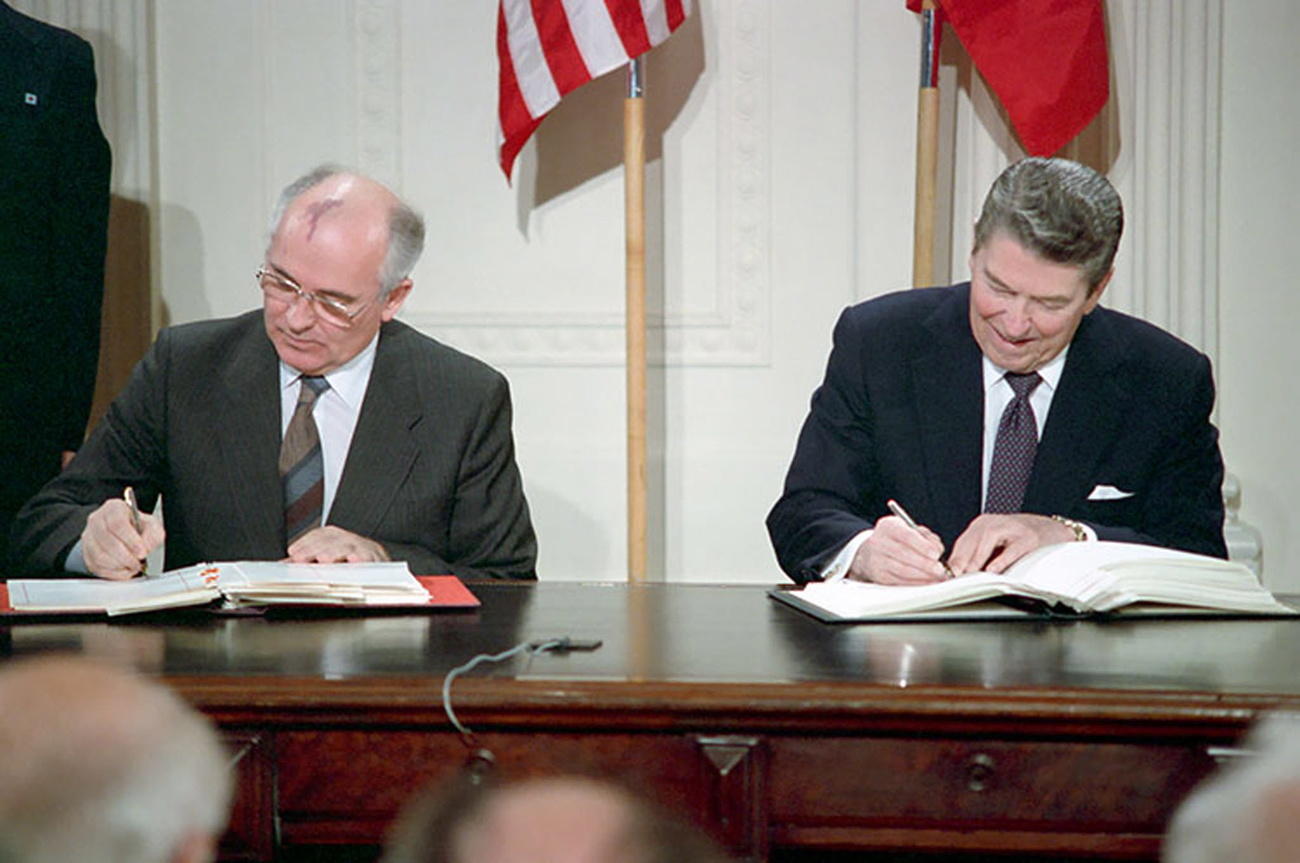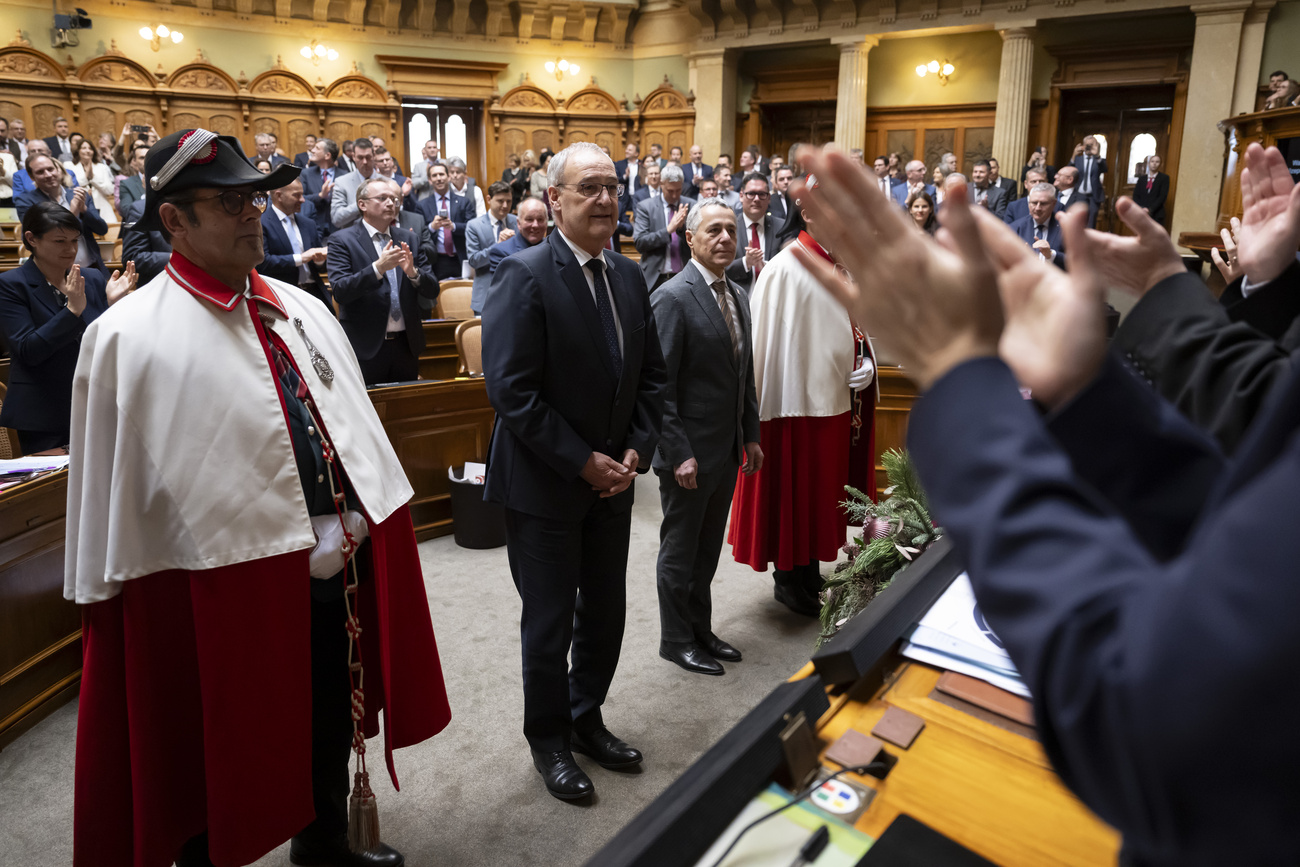
Foreign ministry ‘regrets’ demise of key Cold-War era arms deal

Switzerland has expressed dismay at official end of a 32-year-old treaty between the United States and Russia banning the development of intermediate range nuclear missiles.
Following an initial suspension by the Americans in February this year, Friday marked the end of a six-month period in which the treaty could have been saved.
The official Swiss reactionExternal link was also one of “regret”, the foreign ministry writing that it means “the loss of an important arms control instrument which has been crucial in contributing to European security”.
The foreign ministry called on both sides to “refrain from developing and deploying any systems prohibited under the INF treaty” and, more vaguely, “to exercise the utmost restraint in order to avoid any further developments that would be detrimental to European security”.
The Geneva-based International campaign to abolish nuclear weapons (ICAN), the organisation that won the Nobel Peace Prize in 2017, said on FridayExternal link that the “collapse of the INF Treaty is a significant loss that puts the world – and Europe in particular – at increased risk.”
It called on both Washington and Moscow to renew talks to restore the treaty.
2,692 missiles destroyed
US Secretary of State Mike Pompeo blamed the Russians for the agreement’s demise, saying that Moscow had for years been developing and fielding weapons in violation of its terms, thus threatening the US and its allies, particularly in Europe.
The Intermediate-Range Nuclear Forces (INF) treaty was signed by Ronald Reagan and Mikhail Gorbachev in 1987 and banned land-based missiles with a range between 500 and 5,500 kilometres. It led to the elimination of some 2,692 US and Soviet ballistic and cruise missiles.
According to the Associated Press news agency, a senior US administration official has said that the US is planning the test flight of a weapon in the coming weeks that would previously have been banned under the terms of the treaty.
The end of the INF means that the cornerstone of bilateral arms control between the US and Russia is now the New START agreement, an agreement signed under the Obama Administration which puts limits on long-range nuclear warheads.
Donald Trump has called New START “just another bad deal” made in the Obama years.

In compliance with the JTI standards
More: SWI swissinfo.ch certified by the Journalism Trust Initiative































You can find an overview of ongoing debates with our journalists here . Please join us!
If you want to start a conversation about a topic raised in this article or want to report factual errors, email us at english@swissinfo.ch.